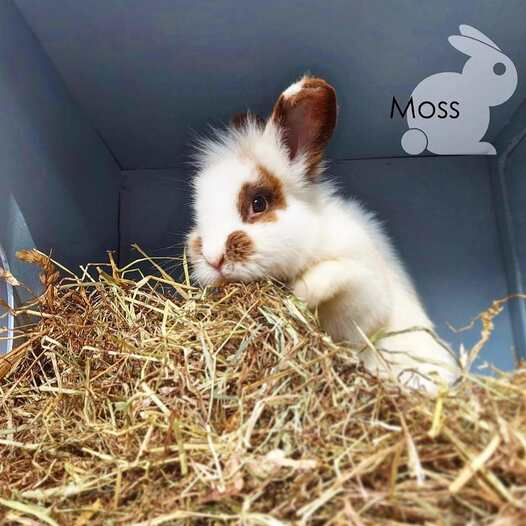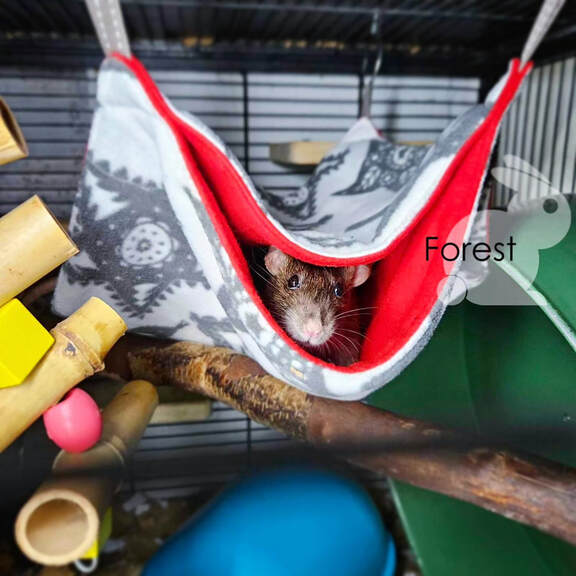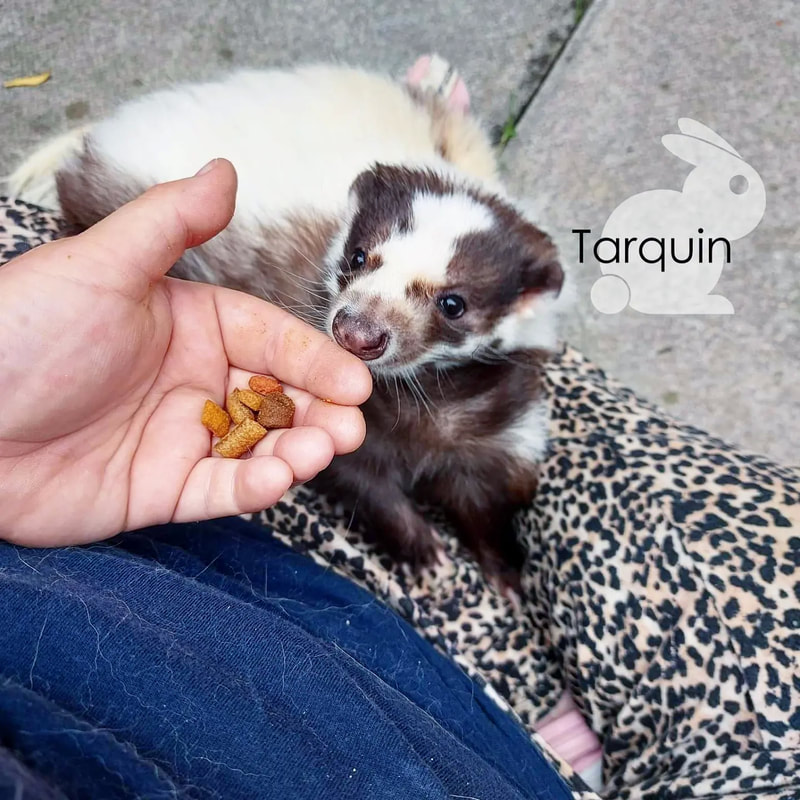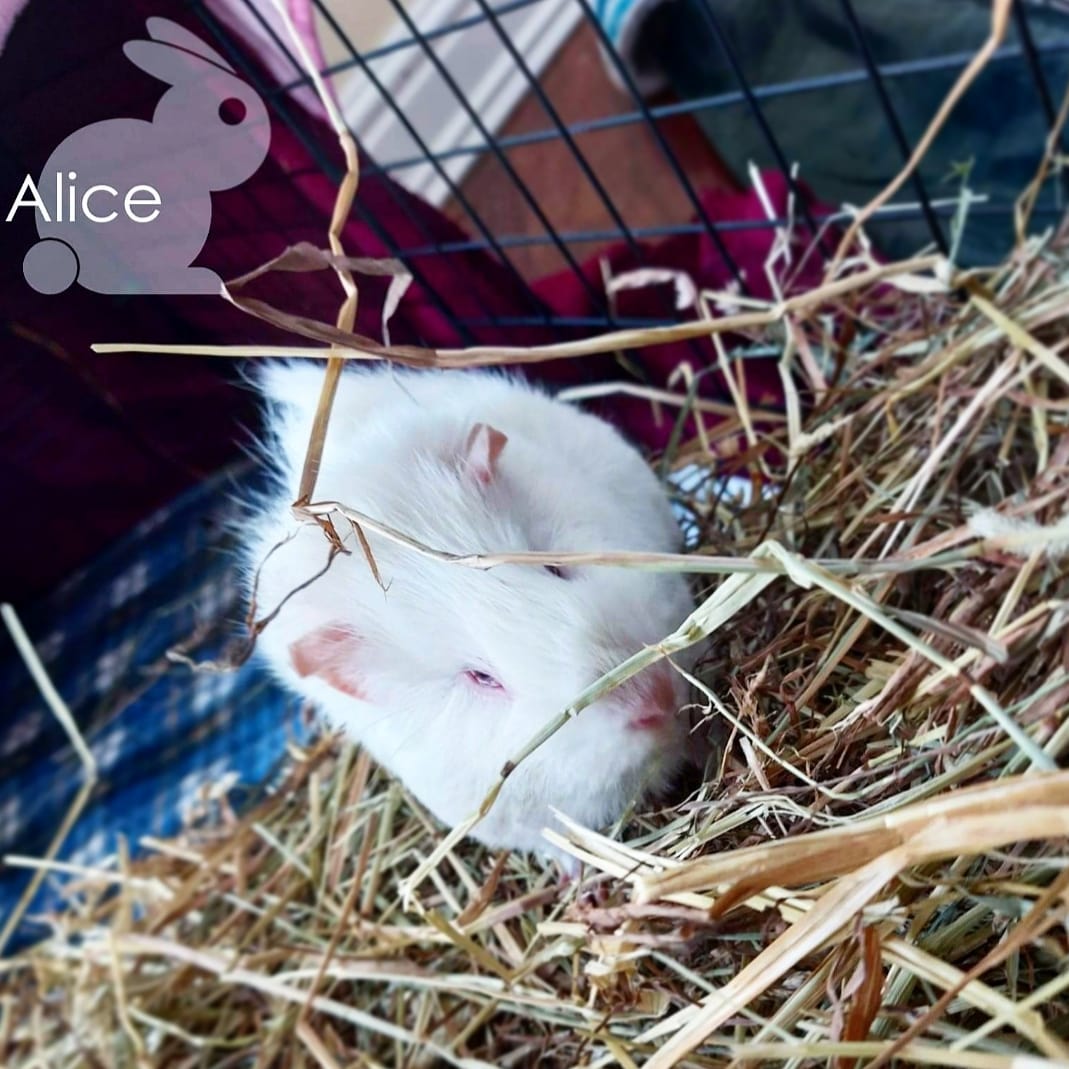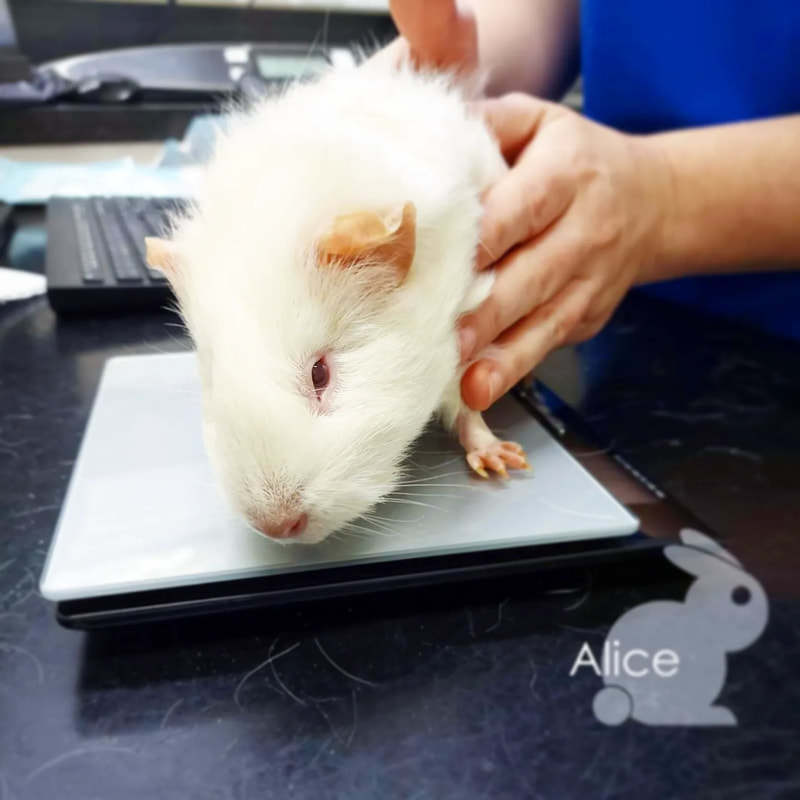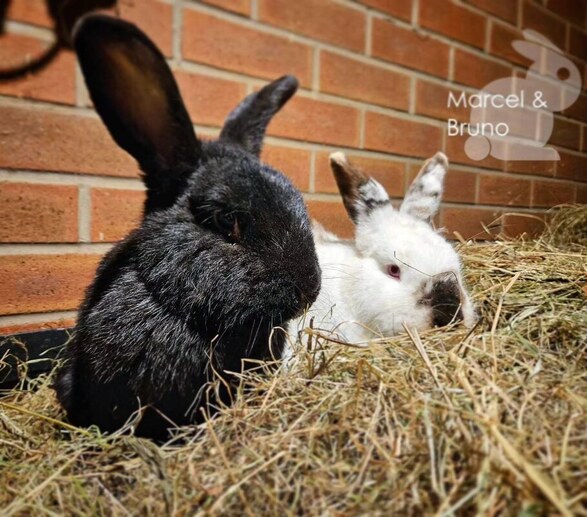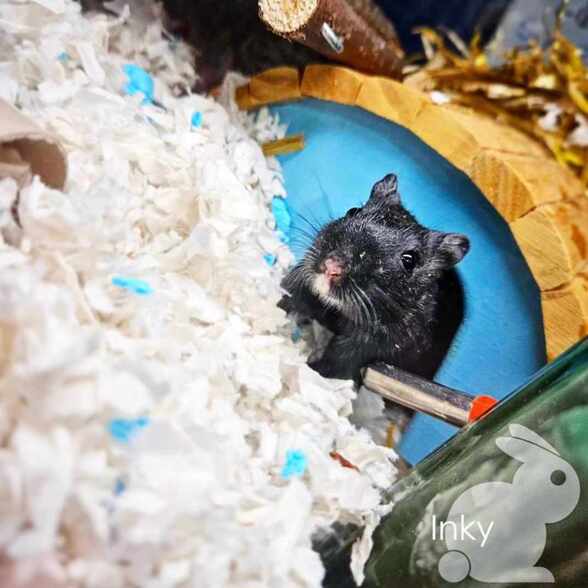Of course, we love the animals within our care and could keep every single on of them forever. By rehoming, we can help even more animals who need us.
Sometimes, we have animals arrive in our care that - sometimes unexpectedly - turn out to be so unwell that they cannot be rehomed. This not only puts a huge strain on our finances, but on our facilities and resources available too. Offering an animal sanctuary status means that spot that was originally used to take in more animals is now occupied for days, weeks, months, sometimes years. It means that £100 a month we set aside for general upkeep of the rescue is now reserved to treating the unwell animal.
These scenarios are unavoidable. We love to help the most vulnerable animals. We're more than happy to offer sanctuary to an animal if we know it's within their best interest.
As a fundraising opportunity, we've decided that you, the public, can be given the opportunity to sponsor those animals who, sadly, will never leave our facilities.
First things first, let's meet the animals we're referring to:
Sometimes, we have animals arrive in our care that - sometimes unexpectedly - turn out to be so unwell that they cannot be rehomed. This not only puts a huge strain on our finances, but on our facilities and resources available too. Offering an animal sanctuary status means that spot that was originally used to take in more animals is now occupied for days, weeks, months, sometimes years. It means that £100 a month we set aside for general upkeep of the rescue is now reserved to treating the unwell animal.
These scenarios are unavoidable. We love to help the most vulnerable animals. We're more than happy to offer sanctuary to an animal if we know it's within their best interest.
As a fundraising opportunity, we've decided that you, the public, can be given the opportunity to sponsor those animals who, sadly, will never leave our facilities.
First things first, let's meet the animals we're referring to:
|
Meet Moss,
Sponsored Moss was surrendered to us as a stray back in 2022. He was. sadly, never claimed. He required immediate treatment for Cheyletiellosis, and was soon booked in to be vaccinated and neutered. Moss was fully rehabilitated and ready to be rehomed, when one day he started sneezing due to blocked nasolacrimal ducts. After a vet examination, they noted he had some swelling on his jaw, and they decided that they wanted to take radiographs, and flush his ducts so they were clear. Sadly, x-rays highlighted that Moss had tooth-root elongation. It's an incurable dental disease which meant Moss would require ongoing medical management. We were advised to keep him as a sanctuary resident. Moss is truly settled into sanctuary life and absolutely loves life! He's known as the scruffy one, as he constantly seems to have some hay stuck in his long hair! |
|
Meet Forest
Sponsored Forest is a half-wild female rat. She was surrendered into our care with her sister, May, who has since passed away due to a pituitary tumour. Forest has now joined our large sanctuary group of neutered males and females. Forests' previous owner was struggling to keep her safe as they were escaping and biting often, leaving their owner feeling understandably overwhelmed. Her previous owner claimed to have been misled by the person who the rats were from, as they weren't forthcoming about their behaviour. We agreed to offer the girls a sanctuary spot here with us. They're settling in really well, and we've managed to develop a good routine for cleaning and maintenance that doesn't cause the girls too much stress. They're pretty much unable to be handled, but we've experience in being able to safely relocate them, should we ever need to. |
|
Meet Tarquin,
Sponsored Tarquin the striped skunk arrived in our care due to his owner being unable to keep him. A big reason why we wanted to help Tarquin was due to the severe levels of aggression his owner had reported. As soon as he established his territory his aggressive behaviour peaked and he was acting exactly as his owner had mentioned. We started with surgical castration which appears to have helped quite a bit, this combined with a new peaceful outdoor enclosure has started to help with building his confidence. Skunks are no easy undertaking at the best of times, never mind adding his temperamental behaviour into the mix. Taquin will stay with us as a resident and is an ambassador as to why "domesticating" skunks is something we wholeheartedly disagree with. Keeping wild animals wild is something we are very passionate about, but of course, we always want to help those who find themselves trapped in the pet trade. |
Meet Alice,
Sponsored
Alice arrived into our care with her Mum (Hazel) and her sister (Mabel). We agreed to offer the girls sanctuary space here as Alice is a lethal white guinea pig. For those who are unaware about what a lethal white guinea pig is; it's a recessive gene that has a 1 in 4 chance of occurring when breeding roans and dalmatians. Lethal whites suffer with a wealth of health issues; they will never thrive and typically don't live as long as other guinea pigs.. They have specific characteristics including:
Sponsored
Alice arrived into our care with her Mum (Hazel) and her sister (Mabel). We agreed to offer the girls sanctuary space here as Alice is a lethal white guinea pig. For those who are unaware about what a lethal white guinea pig is; it's a recessive gene that has a 1 in 4 chance of occurring when breeding roans and dalmatians. Lethal whites suffer with a wealth of health issues; they will never thrive and typically don't live as long as other guinea pigs.. They have specific characteristics including:
- They always have white fur and red eyes
- Micropthalmia is common
- They're usually blind and deaf
- Dental disease is ubiquitous; incisor maloclussion or no incisors altogether, molar spurring etc
- Neurological issues
- Poor immunity
- They're usually much smaller than siblings
- Gastrointestinal issues
- Other deformities
|
Meet Bruno and Marcel
Unsponsored Bruno and Marcel arrived in our care with 3 other rabbits, Gert, Fritz and Javed. These rabbits were saved from the T&S rabbit meat farm that was thankfully closed down due to the incredible efforts of animal activists, and the campaign "Shut Down T&S Rabbits". All of the rabbits were subjected to horrific living conditions and were exposed to numerous diseases. Marcel, Bruno and their companions were very sick. They showed symptoms such as nasal discharge, sneezing, coughing, had a generally unkept appearance and diarrhoea. Nasal swaps, bloods and fecal samples were sent to the labs and the results were quite frankly, horrific. They were battling hepatic coccidiosis, Bordetella bronchiseptica, Moxarella, and Burkholderia cepacia. Management for these diseases is costly and intense. After many months, we are able to say that Bruno and Marcel are happy and mostly asymptomatic, but without strict biosecurity and prophylactic measures, their condition could worsen. Sadly, we lost Gert, Fritz and Javed to these awful dieases - we were too little too late. By sponsoring these guys, you're able to help us continue to give these rabbits the best life possible in our care, and help them finally enjoy their freedom. |
|
Meet Inky,
Unsponsored Inky arrived into our care as a lone gerbil who'd lost his companion. After an assessment period, we concluded that Inky wasn't tolerant of people, but he was healthy. We attempted to bond him to another male gerbil who was incredibly placid via the split cage method. To be blunt, it ended in disaster due to Inky being incredibly aggressive and unpredictable. Based off what we observed, we decided to have Inky neutered as this also opened up the opportunity for female companionship, and may even help with his behaviour. Boy, were we wrong. During his time here, he's developed a reputation for being a ball of rage who wakes up every single morning and chooses violence. He hates people, he hates gerbils, and he probably hates you too. We've genuinely met wild animals who are more welcoming than Inky. In all seriousness, we did not come to the decision lightly that Inky should be housed alone, but we simply couldn't subject another gerbil to harm attempting to bond him. We've also decided that Inky would be safest and happiest staying here with some of our extremely savvy volunteers who can help Inky live out the best life possible - plasters on standby! |
Why Sponsor an Animal?
Some of our permanent residents with chronic health issues are expensive and time consuming, to say the least. Your sponsorship donations can help us continue to fund the high-quality care we expect all our residents to have - permanent or temporary.
Your contributions can quite easily save a life.
We are a non-profit rescue. All funds raised will go straight back into caring for our sanctuary residents.
Your contributions can quite easily save a life.
We are a non-profit rescue. All funds raised will go straight back into caring for our sanctuary residents.
How Sponsoring Works:
We will be dividing sponsoring into 4 tiers:
- Tier one (£2 a month): to sponsor an animal for £2 a month you will receive a welcome certificate of thanks and 2 Bacchus Resident Rescue stickers,
- Tier two (£5 a month): to sponsor an animal for £5 a month, you will receive a welcome certificate of thanks, 2 Bacchus Resident Rescue stickers, and a Bacchus Residents Rescue mug.
- Tier three (£10 a month): to sponsor an animal for £10 a month you will receive a welcome certificate of thanks, 3 Bacchus Resident Rescue stickers, 2 Bacchus Residents Rescue mugs, and an optional social media shout out.
- Tier four (£20 a month): to sponsor an animal for £20 a month you will receive a welcome certificate of thanks, 3 Bacchus Resident Rescue stickers, 2 Bacchus Resident Rescue mugs, an optional social media shout out, and a card from your sponsored animal.
Terms and Conditions
- You will be expected to set up a monthly direct debit for sponsorship payments. These can be paused or terminated immediately, but we do kindly ask you inform us first.
- Each individual animal can be sponsored by more than one person. We will label these animals as co-sponsored.
- You will only receive your welcome gifts once your first payment has been made.
- We guarantee 100% of your payments will go towards costs of animal care.
- You can decline specific welcome items if you do not wish to receive them.
- You cannot ask for welcome items above your payment tier.
- Your sponsorship will no longer go ahead once the animal you're sponsoring is deceased. We will contact you with the details you've provided to inform you that your sponsored animal is deceased, and sponsorship payments for the animal you've sponsored will no longer be required. You do have the option to sponsor another animal instead.

